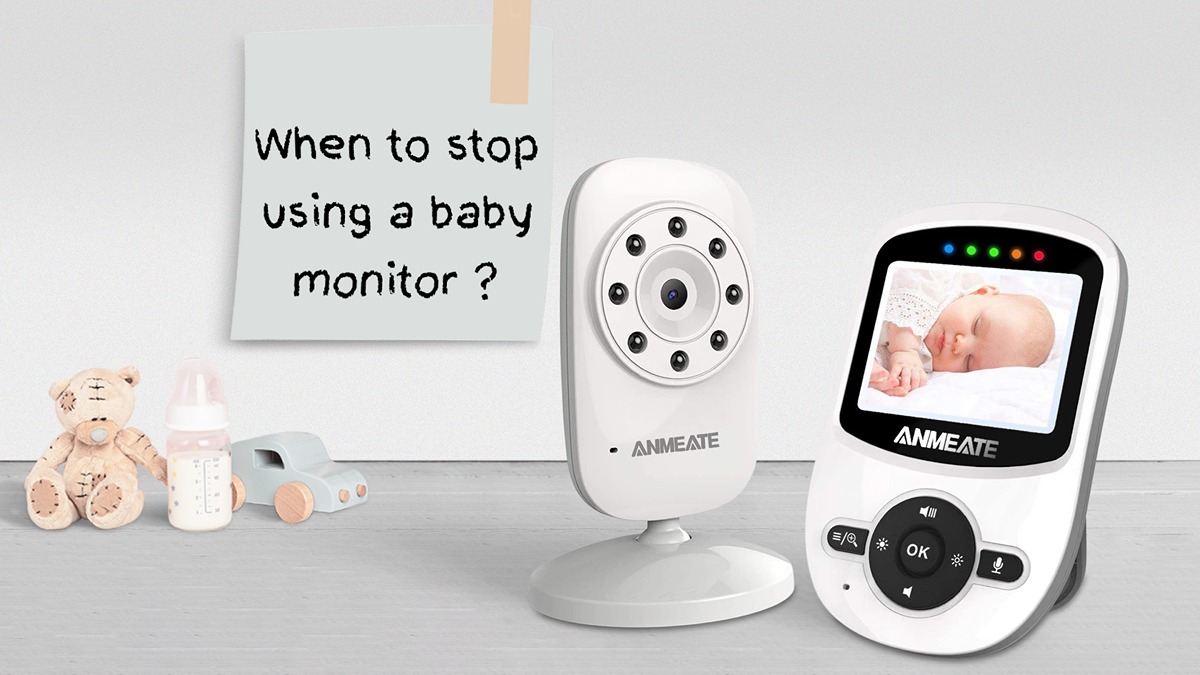When your baby arrives at home you closely watch it 24/7. This is totally normal, newborns need to be fed and changed very often so, of course, you are going to keep an eye on it. A useful tool for making sure that your baby is okay is a baby monitor.
This is probably already on your list of things to get before your baby comes or you already have one. Whatever the case may be eventually we will start asking ourselves when to stop using a baby monitor.
Main Points
- A baby monitor can be an extra pair of eyes and ears.
- You can start using a baby monitor right away.
- When you should stop using a baby monitor will depend on your particular situation.
- After your kid is able to call you when something is wrong, it’s time to ditch the baby monitor.
- Jumping and running to the nursery every time you hear the slightest noise coming from the baby monitor can cause stress for the parents.
When to stop using a baby monitor
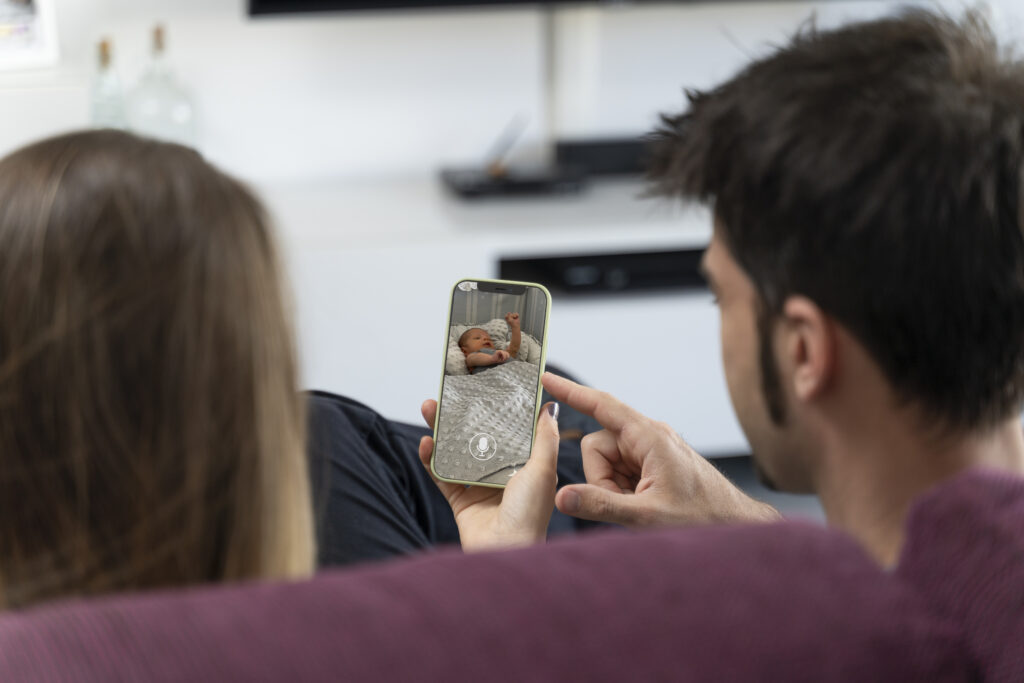
When it comes to baby monitors, it’s important to know not only the best places to put them but also when it’s appropriate to stop using them
The time when to stop using a baby monitor solely depends on the parents’ preference. Some stop using it after their baby turns one, and some use it until their baby turns four. All and all, it depends on the behavior, age, the distance between your baby’s room and your room, and other essential things like this.
The purpose of using a baby monitor
The purpose of having a baby monitor is to keep an eye on your baby from a distance. There are different types of monitors, the most common ones are the ones that have a camera so you can actually see what your baby is doing in the room.
I personally had this type of baby monitor because when my first baby was born I was obsessed with keeping track of everything it does all day every day. The witch was actually nothing much. They just sleep through the day basically. Take it from me, you don’t have to do 24/7-hour surveillance.
Be on the safe side
The overall usage of any kind of baby monitor is to be aware of the danger and act fast if you notice that something is happening.
A lot of parents get a baby monitor in order to prevent sudden infant death syndrome or SIDS. However, it should be noted that according to studies there is no direct coloration between having a baby monitor and a decrease in the chance of SIDS.
It saves you more time
This will save you from running around the house every time you hear a noise coming from your baby’s room. Babies can start crying in their sleep, or they can wake up throw a fit for a few minutes, and go back to sleep.
Having a baby monitor will allow you to observe the situation and make sure that your baby is safe, without you having to go into their room.
If every time our baby makes a noise you burst into their room and start cradling and cuddling them, when they get older and get a sense of self, they might start throwing fits on purpose just to get your attention. They will figure out that as soon as they start being loud you’ll come running to them.
Communicate with your baby
Most baby monitors also allow you to speak through a walkie-talkie system. This will have a different purpose depending on your baby’s age. If you have a three-year-old, you can talk to them through the monitor and tell them when to come over or to behave.
If, however, you have a small baby, you can sing them a lullaby, or even just talk to them. Some babies find their parents’ voices very insulting so just a simple monolog might help them to fall asleep.
When to start using a baby monitor?
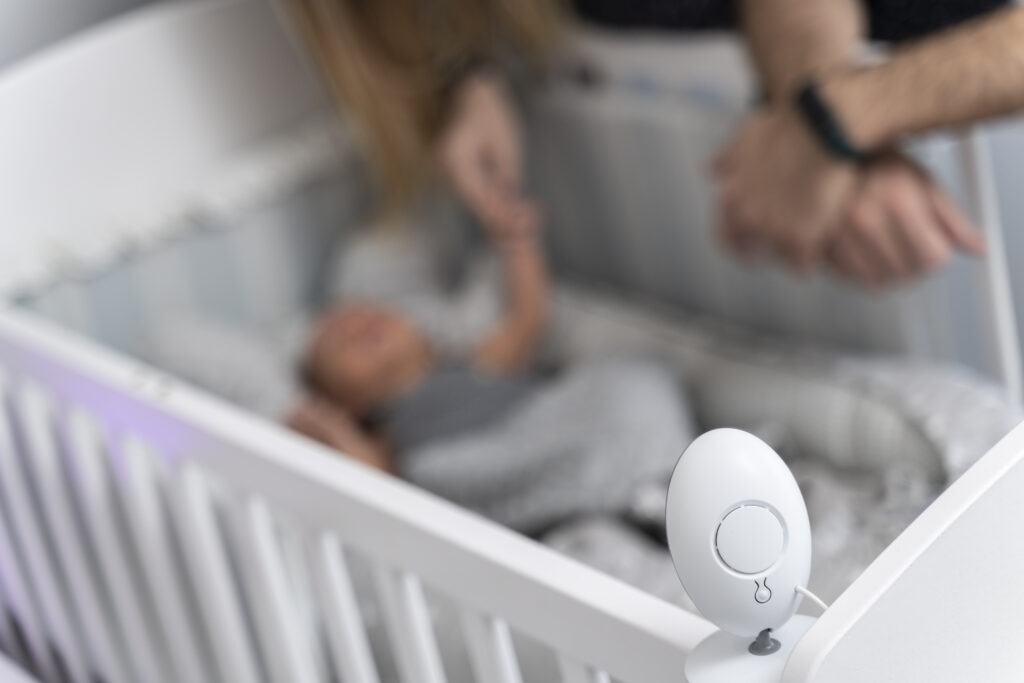
If you are wondering when to start using a baby monitor, you might be disappointed to find out that there is no definitive answer. This will depend on a few factors including your baby’s sleeping schedule and how big your home is.
It is recommended by the NHG that the baby should sleep in the same room as the parents until they are six mounts old, after this milestone you can go ahead and move them into the nursery.
Depending on how far the nursery is from your bedroom you should probably put some kind of baby monitor in there. If the nursery is far enough to where you can even hear your baby crying, then yes, you should put a baby monitor, preferably one with a camera.
Learn about the safety of baby monitors. Understand the potential risks and benefits of using baby monitors and make an informed decision that prioritizes the well-being of your baby
Factors on when to stop using a baby monitor
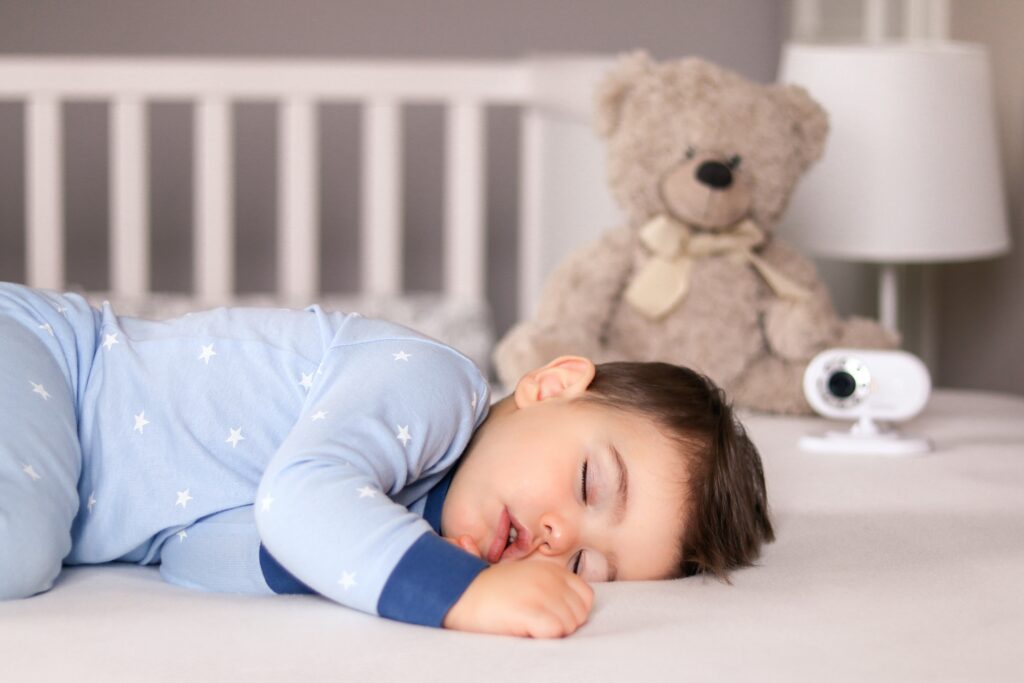
The question of when to stop using a baby monitor is even harder to answer because it varies from situation to situation. Some parents prefer to keep the baby monitor in the room for longer, and some tend to obsess with every noise that comes from it which can cause anxiety.
Age
Some parents take down the baby monitor after their child turns one. By this time your baby will most probably be able to sleep through the night, but they still need nap time, so it might be a good idea, after all, to keep the baby monitor for a little bit more.
Other parents keep their baby monitors in place even when their child turns 4 years old. By this time your child is passed the toddler stage and they start to develop a sense of who they are. This however can mean that they are aware that they’re being watched and they can start behaving for the camera.
A general rule you can follow is that you should ditch the baby monitor after your kid is old enough to come to your room and communicate if something is wrong. However, even by this point, there are some cases in which a baby monitor will be useful.
Sleepwalking
If you’re dealing with a sleepwalker it is best to keep the baby monitor in the room. Preferably the one with a camera so you don’t have to walk into the room every time you hear a noise.
You can just check the monitor to see if your kid is just tossing and turning or actually sleepwalking. Also, make sure to take other protective measures and talk to a professional.
Sickness
If your child is sick it’s smart to have a baby monitor close by. Not only can they use it to call you if they need anything, but you can also see what’s going on for yourself. You can check to see if they’re asleep so you don’t accidentally wake them up when you walk into the room, you can also remind them to take their medicine if they are a bit older.
Distance
The distance from your room to the nursery can also be a factor in deciding when to stop using a baby monitor. If the nursery is close by and you can hear your baby cry, then you can take down the monitor after one year.
Stress
If you are constantly checking the baby monitor and jumping every time you hear the slightest noise, then you should reconsider the whole situation.
Your mental clarity is very important for you and for your baby, so if this causes extra anxiety just ditch the baby monitor. Parents have been raising children, without baby monitors, for many years and we all turned out fine.
Discover the history of baby monitors and find out when they were first invented. Learn about the evolution of baby monitors and how they have changed over time
Conclusion
There is a never-ending debate on the question of when to stop using a baby monitor. The answer, as we saw, is not so simple. A general perception is that you should stop using it between 6 to 12 months after your baby is born. However, this is by no means a rule that anyone carved into stone.
You can always bring the baby monitor back if you decide that you need an extra pair of eyes and ears around the house.
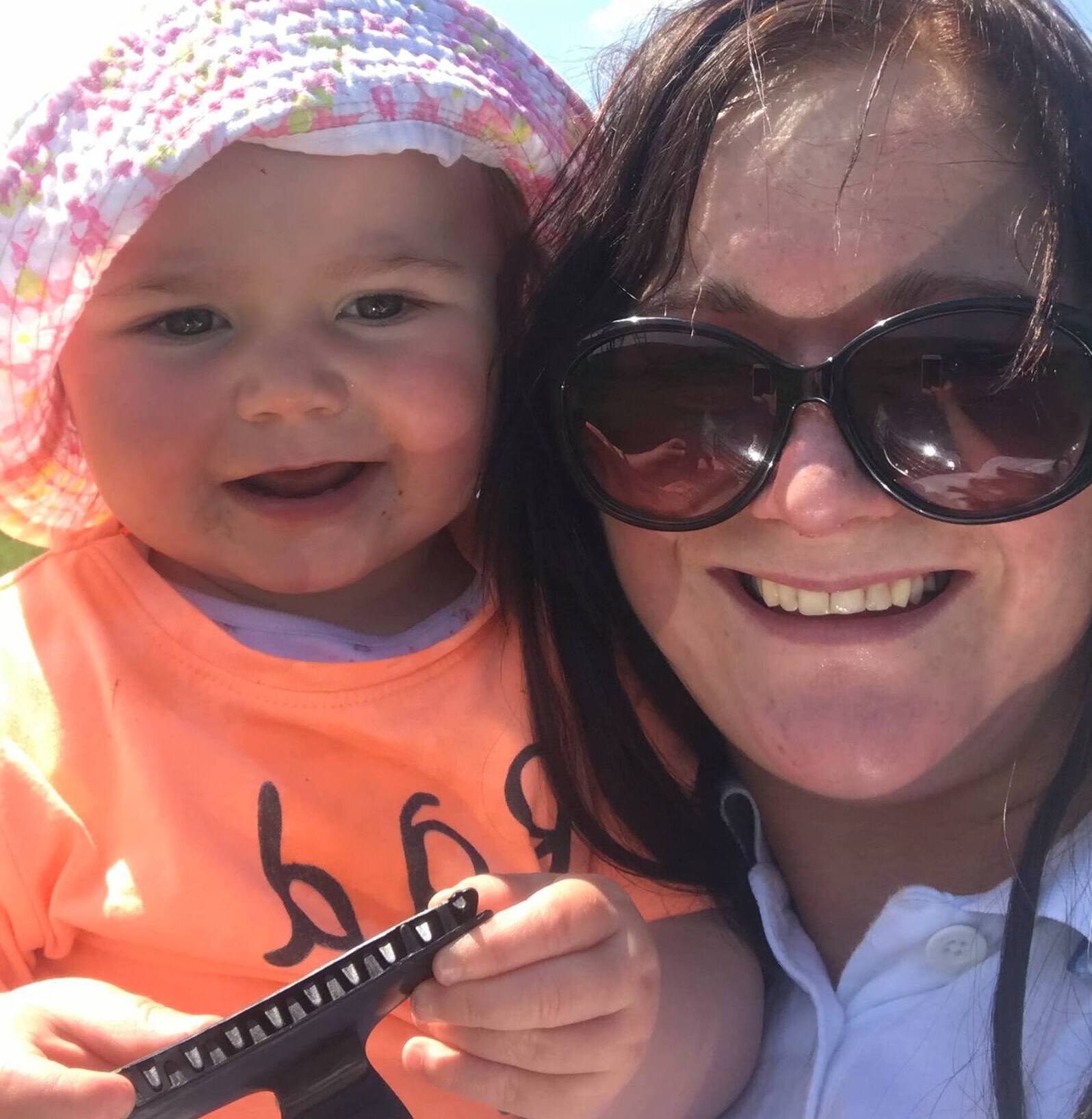
Hi! I am Kimberly, living in Huntington, NY. I’ve raised 4 beautiful children, and i started this blog to help new and upcoming mothers with parenting.

